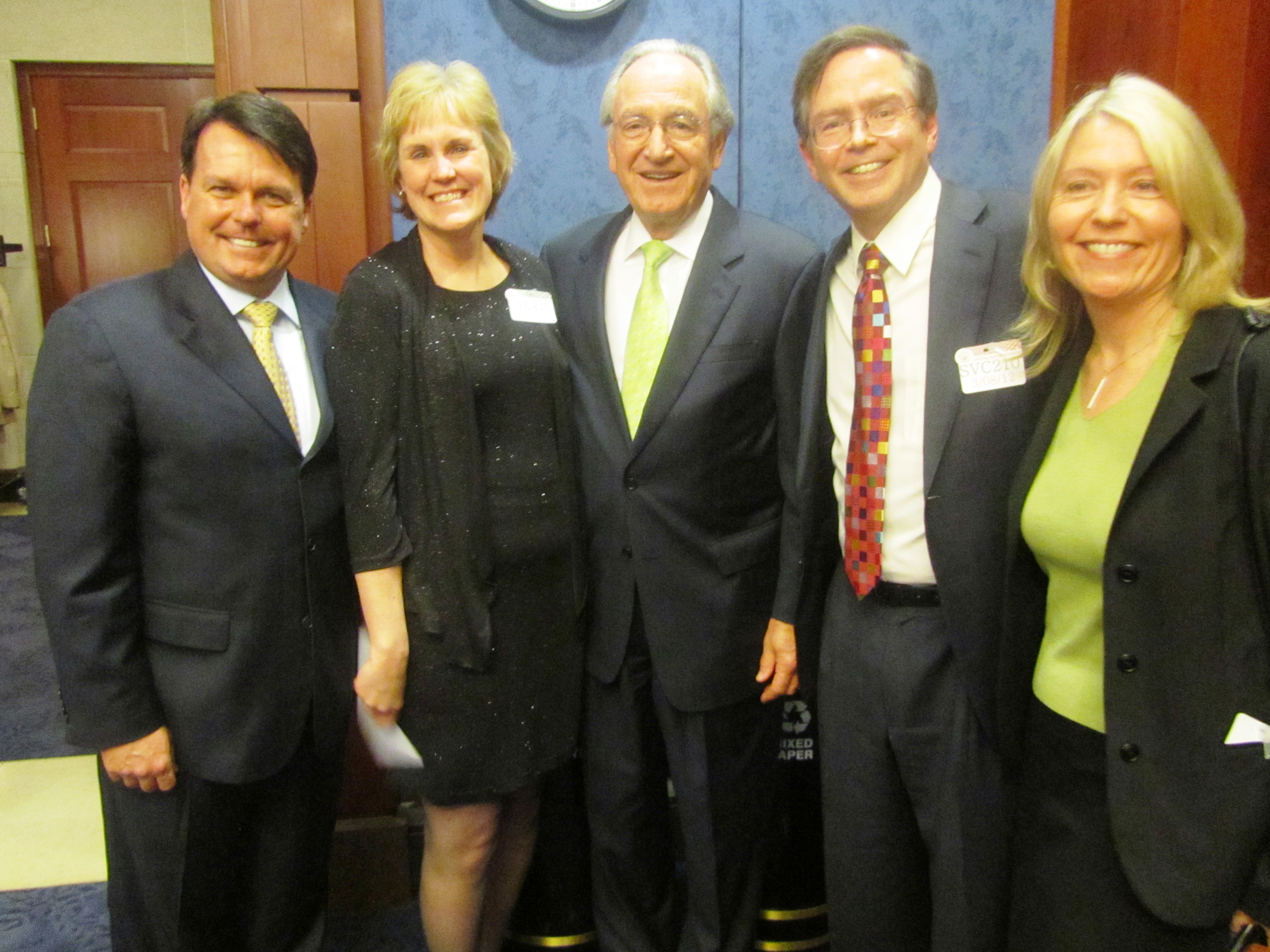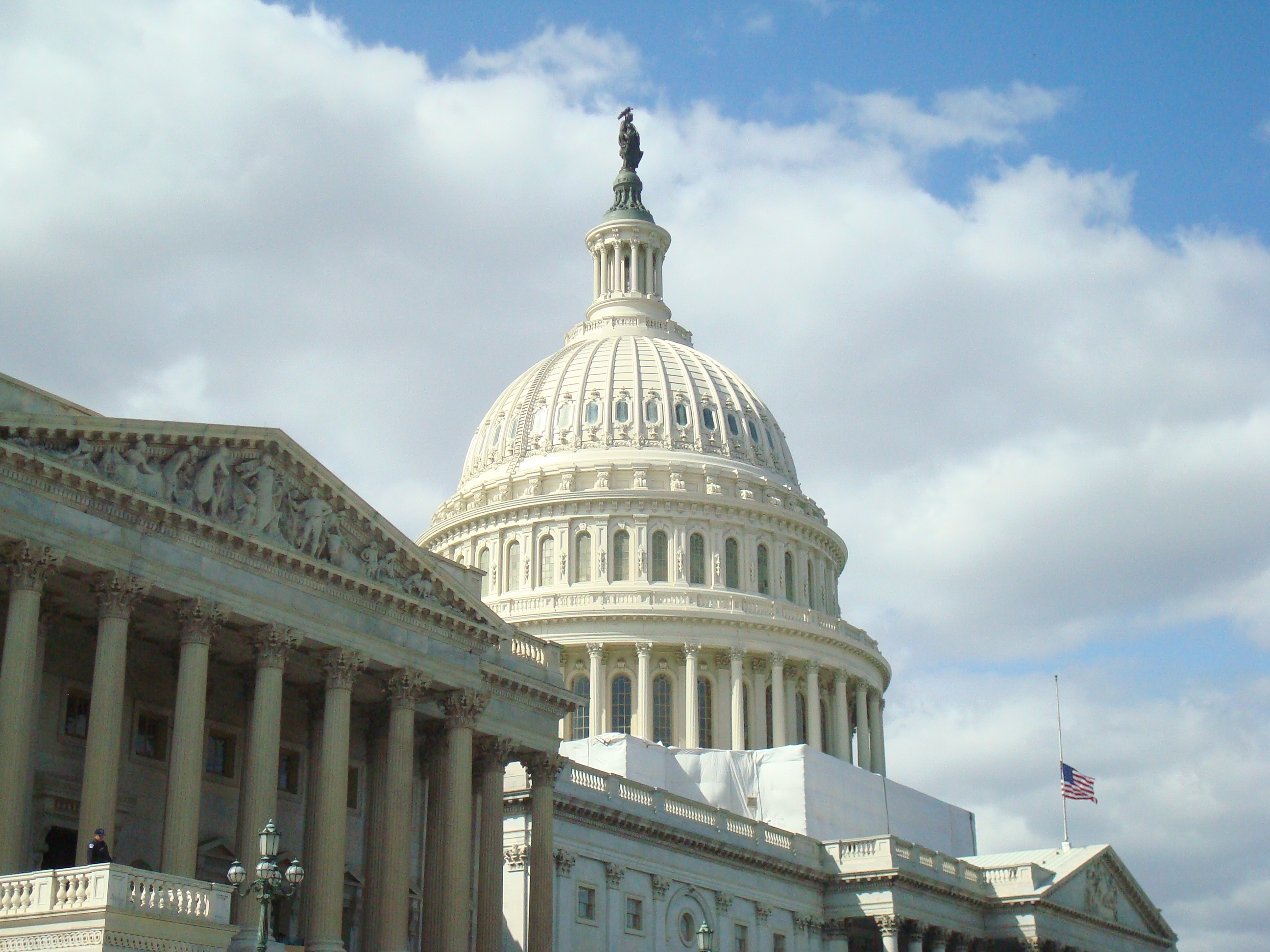On March 8, 2012, ninety guests gathered at the U.S. Capitol to hear Senator Tom Harkin (IA- D), Chairman of the Health, Education, Labor, and Pension Appropriations Committee, recognize the good work of the staff and volunteers of Bookshare on its 10th anniversary.
The Iowa Senator and Julie Freed, an assistive technology teacher and constituent of the Senator’s home state, thanked Bookshare for breaking down barriers to reading access for individuals with print disabilities.

In his speech, Senator Harkin first acknowledged the leadership of Jim Fruchterman, Benetech’s CEO and the founder of Bookshare along with Betsy Beaumon, V.P. and General Manager of Bookshare’s Literacy Programs. He said, “Special thanks to Jim Fruchterman. Talk about a visionary! I can’t tell you what marvelous things Jim has done, especially with Bookshare!”
Ms. Freed honored Senator Harkin’s work in Congress to uphold the promise of ADA (Americans with Disabilities Act, 1990) and IDEA (Individuals with Disabilities Education Act, reauthorized in 2004). These pieces of legislation are signature achievements authored by the Senator to support more than 50 million Americans. The educator also spoke about Iowa’s commitment to equal access and that 100% of Iowa school districts use Bookshare to support students who are blind or have low vision, a reading disability such as dyslexia, or a physical disability like cerebral palsy that impedes them from holding a printed book or turning a page with ease.
Senator Harkin discussed the benefits of digital accessible books and reading technologies to improve education, social engagement, community participation and employment for individuals, especially students. Bookshare now serves more than 190,000 members — 95% of whom are U.S. students.
“If we are really serious about providing a quality education for all students,” said the Senator, “and that we won’t leave any student behind, then we have to ensure that all students, including those with visual impairments and other disabilities, have ready access to information, knowledge and books. In the past and still in schools today, students depend on readers; others have to wait months to get their reading materials converted to braille or audio format, and some go without. Students with visual impairments, brain injuries, severe physical impairments and learning disabilities often need alternative access to text, journals, newspapers and specialty publications. As Julie said, ‘access to digital books has been limited by time and the number of books available.’”
Senator Harkin continued, “Access to digital books has also been limited by publishers’ concerns about copyright laws. The truly remarkable thing about Bookshare is it really has broken down these barriers:
• The barriers of diversity of resources. Only 5% of books were available for students with print disabilities prior to digital content.
• The barriers of access. Some books were available in braille, some in audio and some in digital text…Few books were available in all these formats, and some were not available at all.
• The barrier of time. Alternative formats can take 4 weeks or 4 months to receive. A student who needed a book to study may find that their class is nearly over by the time they get it.
“With digital formats, these barriers have been removed. Alternative formats allow students to succeed in reading the exact same text as their peers at the same time and to read the same books for pleasure. Students can access newspapers to stay up-to-date on current events and not only be a part of their community but participate as a full member. Most importantly, digital access allows students to take advanced courses in high school and to graduate.”
The Senator acknowledged U.S. government officials who attended the Bookshare event including Alexa Posny, the U.S. Assistant Secretary of Education and Rehabilitation Services (OSERS), Kathleen Martinez, U.S. Assistant Secretary of Labor and Sue Swenson, Deputy Assistant Secretary of OSERS.
Other honored guests included Glinda Hill and other representatives from the U.S. Department of Education; representatives from the U.S. Department of State; Eve Hill, Professor and Senior Counselor to the Attorney General who recently testified to members of Congress on “The Promise of Accessible Technologies – Challenges and Opportunities;” Bookshare’s national advisory board including two student ambassadors; educators from Fairfax, VA, Washington D.C. and Montgomery County, Maryland, and leaders from the disability and publishing communities.
Senator Harkin also told a story about Megan Krapfl, a 9th grader in Williamsburg, Iowa. Megan is a member of Bookshare and uses the online digital library and reading technologies to keep up with school assignments and to improve her reading comprehension skills. Megan just read the novel To Kill a Mockingbird in digital format for her English class. Her father said that, digital books and technologies gave his daughter “more learning confidence.” Read the full story.
Senator Harkin closed his remarks with this congratulatory message, “On behalf of tens of thousands of U.S. students with print disabilities, I say to Bookshare, U. S. teachers, parents and advocates everywhere who work on this effort — you have made a tremendous difference in the lives of students and individuals with print disabilities. You have achieved more than you set out to do, doubling your membership. Success begets success… so I hope you can quadruple this goal in the next 10 years. Congratulations!”


Be First to Comment